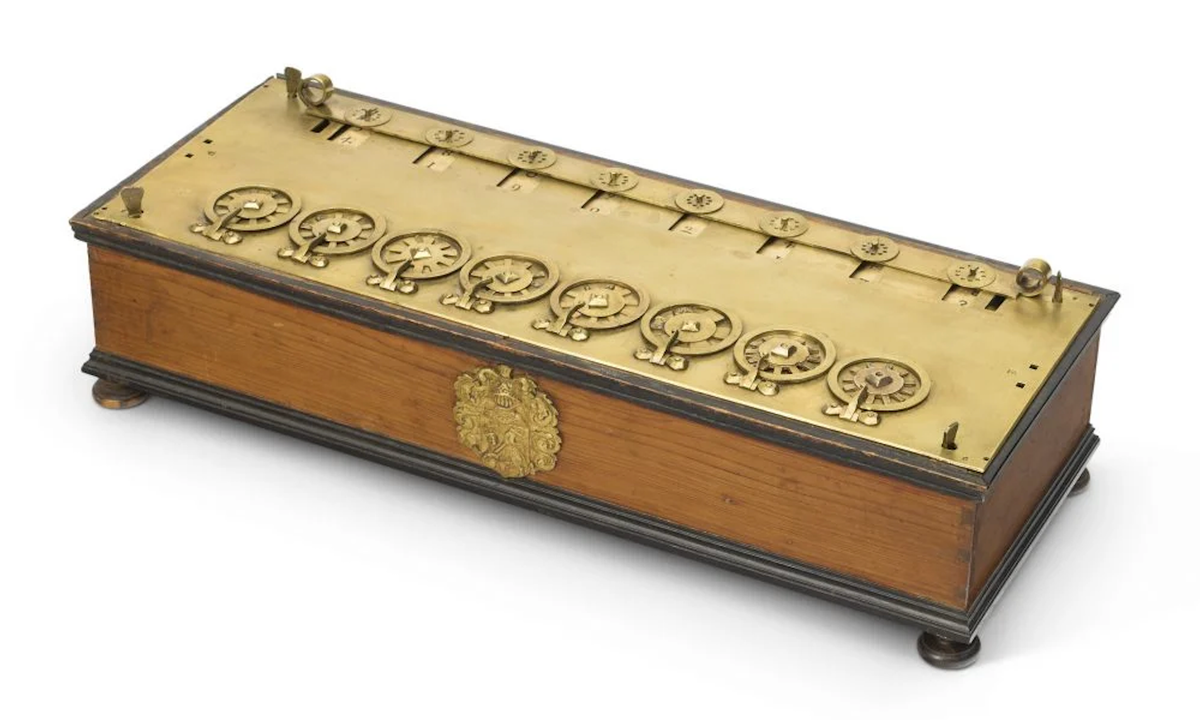
"Carrying an estimate of between €2m to €3m, the calculator is nicknamed "Pascaline" after its inventor, the 17th-century mathematician and philosopher Blaise Pascal. Between 1642 and 1645, beginning when he was just 19, Pascal created 20 "arithmetic machines", including the one that had been scheduled for sale on November 19. It was to be sold along with other items owned by the late engineer and manuscript collector Léon Parcé."
"In the catalogue notes, Christie's described the calculator-which is still fully functional-as "the most important scientific instrument ever offered at auction" and stressed the "historical importance" of this "first attempt to substitute the human mind with a machine". These are the same terms used in arguments presented to the court by four heritage organisations and associations of friends of Blaise Pascal, along with three professors-Jean-Michel Bismut, Thierry Lambre and Laurence Plazenet-who successfully blocked the export certificate for the "national treasure"."
"The ministry of culture, which authorised the export certificate in May, responded that five of the eight surviving original Pascalines, including the very first one presented in 1645 to King Louis XIV, are already in French public collections. Scholars replied that this one is unique because it the only remaining version developed specifically developed for land surveying, rather than accountancy or equations, the other two functions that Pascal designed the machines to perform."
Christie's withdrew a 17th-century Pascaline from a Paris sale after a French court suspended its export certificate. The calculator, estimated at €2–3m and still fully functional, is one of 20 "arithmetic machines" Blaise Pascal made between 1642 and 1645, and had been consigned from the estate of engineer and manuscript collector Léon Parcé. Christie's catalogue called it the most important scientific instrument ever offered at auction and emphasized its historical importance as an early mechanization of thought. Heritage organisations and three professors successfully sought to block exportation as a national treasure; the ministry said five of eight surviving originals are in French collections. An emergency hearing occurred on 18 November, one day before the scheduled sale.
Read at The Art Newspaper - International art news and events
Unable to calculate read time
Collection
[
|
...
]